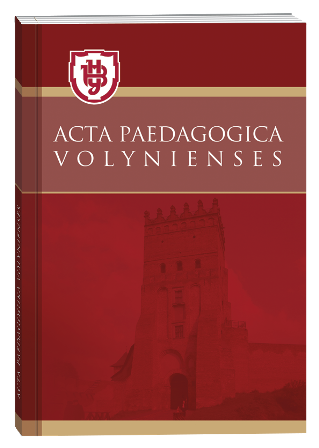PROJECT METHOD AS A MEANS OF DEVELOPING STUDENTS' COGNITIVE INTERESTS
DOI:
https://doi.org/10.32782/apv/2021.4.7Keywords:
project method, cognitive interests, educational process, design, labor productAbstract
The purpose of the article is to reveal the psychological and pedagogical mechanisms of influence of the project method for the development of cognitive interests’ students of higher educational institutions of medical profile. The authors emphasize that the pedagogical theory does not sufficiently clarify the content and procedural components of the implementation of the method of projects in the educational process of higher education institutions, favorable for the development of cognitive interests of students. The authors reveal the essence of the urgency of the problem, because the cognitive interests of students are the leading motive for learning and affect the effectiveness of this process. The article emphasizes that the leading task of a modern higher education institution is to prepare a fully developed personality, with quality education, with well-formed professional competencies, knowledge, high moral qualities, ability to act independently in various life situations, applying their knowledge and experience. The project method makes it possible to take responsibility for the results of decisions and their own medical practice. The research methodology is based on scientific concepts of student-centeredness, digitalization of higher education and is accompanied by the use of empirical research methods. It is emphasized that design in higher education is based on generally accepted definitions, principles, established stages of activity, closely related to the surrounding society and the practice of human life. It is pointed out that the method of projects in the educational process allows for a practical combination and proper application of theoretical knowledge and clear practical skills, which forms the ability of coordinated teamwork in various simulated situations and simulation practices. The authors determine that the application of the project method in the development of cognitive interests determines the actualization of creative abilities, increasing motivation for learning activities, the individual level of development of all project participants, the quality of basic knowledge and culture.
References
Зайцев В.С. (2017). Метод проектов как современная технология обучения: историко-педагогический анализ. Вестник Челябинского государственного педагогического университета. № 6. С. 52–62.
Килпатрик В.Х. (1928). Основы метода. Москва : Госиздат, 115 с.
Коберник О.М. (2002). Розвиток методу проектів у вітчизняній і зарубіжній педагогічній теорії і практиці: зб. наук. праць УДПУ : Спецвипуск. Київ : Науковий світ. С. 127–130.
П’ятакова Г.П. (2003). Сучасні педагогічні технології та методика їх застосування у вищій школі Львів : Вид. центр ЛНУ ім. І. Франка, 55 с.
Підласий І.П. (2004). Практична педагогіка або три технології. Київ : Слово, 616 с.
Полат Е.С. (1999). Новые педагогические и информационные технологии в системе образования: монография. Москва : Академия, 272 с.







